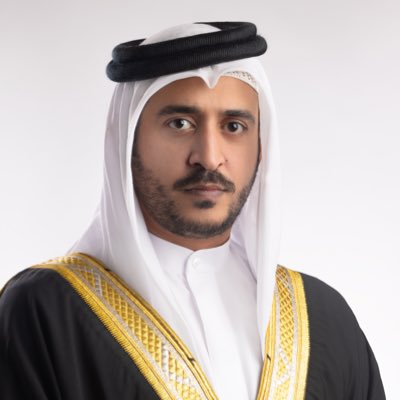Early Life and Education
Hamad bin Isa Al Khalifa was born on January 28, 1950, into the royal family of Bahrain, which has ruled the island nation for centuries. He is the eldest son of Isa bin Salman Al Khalifa, the 15th ruler of Bahrain, who had been in power for over three decades. Growing up in the royal palace, Hamad was exposed early to the intricacies of leadership and governance. His father, who had overseen a period of modernization in Bahrain, would serve as a role model and influence Hamad’s eventual approach to leadership.
Hamad attended various schools, including those in Bahrain, before pursuing higher education abroad. He studied at the prestigious Mons Officer Cadet School in the United Kingdom, a key stepping stone for many members of the Gulf royal families aiming to gain a military and administrative background. This military training would later prove invaluable to Hamad as he navigated his way into Bahrain’s political and royal structure.
Military Career and Rise to Power
Hamad bin Isa’s military career began in earnest when he joined the Bahraini Armed Forces, rising through the ranks with a reputation for discipline and strategic thinking. In the late 1970s and early 1980s, he held several key positions within the military, and his leadership skills became increasingly evident. During this period, the Al Khalifa family, ruling Bahrain for generations, maintained a delicate balance of power between local factions and regional pressures.
In 1992, Hamad was appointed as the Crown Prince of Bahrain, a position that positioned him as the heir apparent. His appointment marked the beginning of his gradual involvement in the kingdom’s ruling apparatus, including economic, political, and military decisions. As Crown Prince, Hamad worked closely with his father, who was beginning to show signs of age and ill health, and started to carve out a more active role in steering the country’s future direction.
However, it was only in 1999, after the death of his father, that Hamad bin Isa Al Khalifa ascended to the throne as Bahrain’s King. His assumption of power came at a pivotal moment in the country’s history, as Bahrain was undergoing significant internal pressures for political reform and modernization. This period of transition would prove to be one of the defining challenges of Hamad’s reign.

Reforms and Economic Modernization
Upon assuming the throne, King Hamad bin Isa Al Khalifa quickly set about introducing a series of reforms designed to modernize Bahrain’s political and economic systems. Recognizing the need for political stability to maintain the country’s position as a key player in the Gulf, Hamad initiated what would become known as the “Bahraini Renaissance,” a period of significant reform in both governance and infrastructure.
One of the first major steps in Hamad’s reform agenda was the introduction of the National Action Charter in 2001. This document laid the groundwork for a more democratic Bahrain by introducing constitutional amendments that allowed for the establishment of a bicameral legislature. The National Action Charter also promised greater political freedoms, including the formation of political parties and greater participation in the decision-making process. Hamad’s reforms provided the framework for a more modern, inclusive political system, though critics would later argue that the reforms were more symbolic than substantive.
Economically, Bahrain flourished under Hamad’s rule. The country, which had historically relied on oil exports, diversified its economy and transformed itself into a regional financial hub. The development of banking and financial services, along with significant investments in tourism, trade, and infrastructure, led to rapid economic growth. Bahrain became a key center for Gulf capital, attracting international investors and fostering economic integration with the global market.
Hamad’s reforms also extended to the country’s social fabric. He sought to modernize education and healthcare, aiming to improve living standards for the population. Despite these reforms, however, the monarchy retained tight control over the country’s political and economic levers, and the benefits of modernization were not equally distributed across all segments of society.
Challenges and Political Unrest
Despite Hamad’s initial promises of political reform, Bahrain has faced continued challenges related to its political structure and social divisions. The kingdom’s Shiite majority, which represents roughly 70% of the population, has long complained of political marginalization and discrimination. While Bahrain’s Sunni minority, including the royal family, has held most positions of power, many in the Shiite community have felt excluded from the political process.
In 2011, Bahrain became one of the flashpoints of the Arab Spring. Massive protests broke out in the capital, Manama, calling for greater political freedoms, an end to sectarian discrimination, and democratic reforms. The government’s response to the protests was harsh. The military, with the assistance of Saudi forces, cracked down on demonstrators, using force to disperse crowds and arrest opposition leaders. The heavy-handed response resulted in dozens of deaths and widespread criticism from international human rights organizations.
King Hamad’s ability to balance reform with maintaining the power of the monarchy was tested during these protests. While he made efforts to address some of the protesters’ demands, including a national dialogue, the crackdown on dissent and the continued suppression of opposition groups undermined his image as a reformer. Human rights groups continue to criticize the lack of political freedoms in Bahrain, citing restrictions on the press, the repression of opposition leaders, and the lack of meaningful political pluralism.
Foreign Policy and Regional Leadership
King Hamad has navigated Bahrain’s foreign policy with a keen awareness of the geopolitical dynamics of the Gulf region. Bahrain has long been a close ally of Saudi Arabia and the United States, with the U.S. maintaining a large military presence in the country, including the U.S. Fifth Fleet. As a member of the Gulf Cooperation Council (GCC), Bahrain has worked closely with its neighbors on issues ranging from regional security to economic integration.
Bahrain’s foreign policy has been heavily influenced by the broader political situation in the Middle East. Throughout Hamad’s reign, the kingdom has aligned itself with other Gulf monarchies, often participating in efforts to contain regional instability. Bahrain’s involvement in the military intervention in Yemen, alongside Saudi Arabia, and its stance on Iran have underscored the kingdom’s commitment to maintaining regional alliances, often at the expense of domestic reform.
Hamad has also sought to position Bahrain as a champion of peace in the broader Arab world. His support for peace initiatives, such as efforts to resolve the Israeli-Palestinian conflict, and his diplomatic engagement with Western powers have been central to his international strategy. However, Bahrain’s strong relationship with Israel, especially following the normalization of ties under the Abraham Accords in 2020, has sparked mixed reactions at home and across the region, especially from Bahrain’s Shiite majority.
Legacy and Prospects for the Future
As one of the longest-serving monarchs in the Gulf, King Hamad’s legacy is a mixed one. On the one hand, he has presided over an era of economic modernization and infrastructure development that has transformed Bahrain into a key financial center. His efforts to introduce political reforms, including the National Action Charter and the creation of a more inclusive political system, have earned him some recognition as a modernizing force in the region.
On the other hand, his rule has been marked by persistent human rights concerns and the failure to implement truly democratic reforms. The continued repression of opposition groups, the lack of freedom of expression, and the country’s sectarian divisions remain major issues under Hamad’s leadership. While Bahrain enjoys relative prosperity, this wealth has not been equitably distributed, and large segments of the population continue to feel disenfranchised.
Looking ahead, Hamad’s leadership will face significant challenges. As Bahrain’s economy becomes more reliant on international trade and finance, and as regional political tensions continue to evolve, King Hamad will need to strike a delicate balance between maintaining internal stability, managing economic growth, and addressing calls for political reform. His son, Crown Prince Salman bin Hamad Al Khalifa, has been groomed as his successor, but whether he will follow in his father’s footsteps or chart a new course for the kingdom remains to be seen.
King Hamad bin Isa Al Khalifa’s reign will be remembered for the modernization of Bahrain’s economy and its geopolitical position in the Gulf, but also for the unresolved political tensions that persist beneath the surface. His ability to manage these challenges will ultimately define his legacy as one of the most prominent monarchs in the contemporary Arab world.
